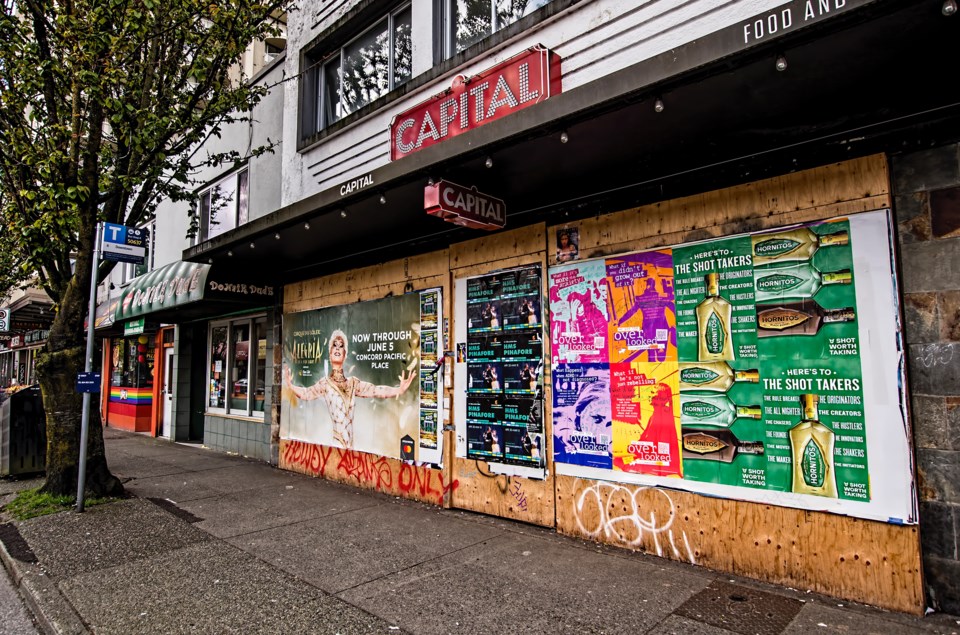If you wanted to craft the worst possible government aid program, it would go something like this: A provincial fund that offers a paltry amount of money to address an enormous problem, launched far too late to make a difference, with so many bureaucratic hurdles that even the businesses that showed up as validators to government’s original press conference get rejected when they apply for the money.
Welcome to the NDP’s Security Small Business Rebate Program.
It’s on track to be a humdinger of a disaster.
Three months in, the government has paid out only $71,308 of $10.5 million earmarked to help small businesses pay for smashed windows, vandalism and security costs associated with rising street disorder.
At this rate, barely three per cent of the available funds will be distributed to small businesses by the Jan. 31, 2025 deadline. Or, put another way, the program will need 37 years to distribute the full amount of government aid.
The core problem is the program’s eligibility requirements are so onerous that few small businesses qualify.
Two hurdles in particular stand out: The requirement for a police file, as well as an insurance claim.
On paper, in a windowless bureaucrat's office in Victoria, that might make sense. But in the real world, many businesses long ago stopped filing police reports and making insurance claims for petty vandalism, because it happens almost every day.
Consider the Nanaimo restaurant in April that had its windows shattered seven times in seven weeks. Or the downtown Vancouver business that had its large front windows smashed three times by drug users last year, each repair costing more than $4,000.
Does it make sense for those businesses to repeatedly file insurance claims? No. Their insurance premiums would skyrocket.
And the math doesn’t work anyway, because the deductibles are often higher than the vandalism cost.
That was supposed to be the entire point of the NDP’s program — to help cash-strapped small businesses punished by repeated small-scale vandalism recover a tiny bit of money.
Yet, inexplicably, the provincial fund requires insurance claims to be filed to access any funds. That automatically renders ineligible many of the worst-hit small businesses.
“The layers of bureaucracy the government has put in place for people to access $1,000 or $2,000 is remarkable — in a bad way,” said BC United critic Peter Milobar.
“It’s not for lack of wanting that people can’t access the program. It’s because the government has layered so much red tape on it that they literally can’t.”
It took the NDP a long time to even craft this program. Businesses began calling for help in mid-2022. The premier admitted last May he was “moving as quickly as possible at the speed of government” — a glimpse into the bureaucratic delays that pushed the launch until late November.
Since then, complaints have begun bubbling over.
Coffee shop JJ Bean, which had to close one of its downtown Vancouver locations in the summer due to crime, vandalism and safety concerns, was rejected for government aid because it hadn’t filed police reports every time it had a concern.
“We never do because nothing happens,” CEO John Neate told Global News. “The only time we call the police is if something is stolen.”
Restaurant chain Superbaba said it was ineligible because it hadn’t filed insurance claims on vandalism cases, due to the fact it’s deductible was greater than the damage caused.
Even the owner of the Junction Public House in Vancouver, who stood beside Jobs Minister Brenda Bailey at the press conference launching the fund, was ruled ineligible because he told Global he’d stopped filing police reports every time his business was vandalized.
Bailey said she’s aware of the criticism.
“My ears are wide open,” she said in an interview.
But she also said she considers the existing eligibility requirements reasonable.
On police reports: “We don’t think it’s a huge rub.”
On insurance claims: “The request for an insurance claim is a reasonable request. I don’t think British Columbians want their government to act like an insurance broker.”
British Columbians also don’t expect their government to treat small business owners like would-be thieves, trying to cheat government out of paltry $2,000 vandalism grants. Yet that appears to be the way the program is structured.
“We want to ensure we are spending people’s dollars wisely,” said Bailey.
Clearly though, that’s gone too far.
The small business owners aren’t the criminals here. They deserve a government aid program that treats them with a little more respect and grace.
Rob Shaw has spent more than 16 years covering B.C. politics, now reporting for CHEK News and writing for Glacier Media. He is the co-author of the national bestselling book A Matter of Confidence, host of the weekly podcast Political Capital, and a regular guest on CBC Radio.




